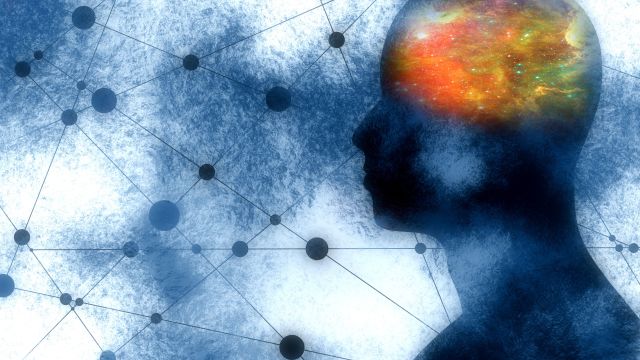People who have stress-related disorders tied to traumatic life events have an increased risk for autoimmune diseases like rheumatoid arthritis, according to findings from a large Swedish study published in June 2018 in the Journal of the American Medical Association (JAMA).
Stress disorders and autoimmune disease, explained
Stress-related disorders—which include post-traumatic stress disorder (PTSD), acute stress reaction and adjustment disorder—typically follow intense or life-threatening stressful events. Autoimmune diseases arise when the body’s immune cells mistake other body cells for invaders and attack them. The resulting disease depends on which tissues are affected.
Autoimmune diseases include a range of conditions including:
- Multiple sclerosis, a disease of the nervous system
- Crohn’s disease, which affects the gastrointestinal system
- Lupus, which can affect multiple body systems
- Psoriasis, a disease which affects the skin
Most of these autoimmune diseases are thought to be related to inflammation that stems from the inappropriate immune response.
Intense stress can also dampen the body’s protective measures against inflammation. Huan Song, MD, PhD, the first author on the JAMA study and a postdoctoral researcher at the University of Iceland in Reykjavik, tells Sharecare that strong evidence supports a role of stress in this derailment of the immune system.
What the study found
To evaluate a potential link between stress-related and autoimmune disorders, Dr. Song and her colleagues used Swedish registry information for 106,464 people diagnosed with a stress-related disorder between 1981 and 2013. They compared these patients to 126,652 of their siblings and to 1,064,640 other people who lacked a stress-related disorder. Their search focused on how often a stress-related diagnosis occurred simultaneously with a diagnosis for one or more of 41 autoimmune diseases.
The results showed a 30 to 40 percent increase in autoimmune disease risk in the population with stress-related disorders. People diagnosed with PTSD at a younger age had an especially increased risk. In contrast, the unaffected siblings and those in the comparison group without a stress-related disorder both had about the same rate of autoimmune disorders.
Interestingly, patients with PTSD who took a class of antidepressants called selective serotonin reuptake inhibitors (SSRIs) for a year after being diagnosed had a decreased autoimmune disease risk compared to those with PTSD who didn’t take SSRIs. This result suggests that at least for PTSD, receiving treatment immediately after diagnosis might reduce the added risk for autoimmune disease. The researchers did not observe this effect with any of the other stress-related conditions.
PTSD also stood out among the stress-related disorders for its association with having more than one autoimmune disease.
Investigating the connection between stress and the immune system
It’s important to recognize that the study looked at diagnoses of stress-related disorders such as PTSD and acute stress reaction, rather than average, everyday stress, says Song. The stress-related disorders in the study “are triggered by emotional trauma or severely stressful life events,” she says, which involve symptoms that are severe and persistent.
Another aspect worth noting: The association detected in the study does not prove that stress-related disorders necessarily cause autoimmune disease, or vice versa. The reason that a cause-and-effect relationship cannot be established is because the study involved only statistical comparisons of people with and without stress-related and autoimmune-related diagnoses.
That said, Song does have some ideas about what might connect the two.
Earlier studies in both humans and non-human animals have pointed to a link between the immune system and psychological stress, Song says. The system that responds to stress might affect the immune system and promote a persistent inflammatory response. Song says that some research in patients with PTSD, for example, shows reduced levels of a hormone that dampens inflammation.
Why siblings who might have had similar experiences did not develop a stress-related disorder is not clear, says Song. And how much genetics contributes to these responses also is fuzzy.
“The determinants of developing such severe reactions are genetic,” Song says, “but they’re also environmental.” Factors such as the level of social support a person may have available for recovering from stressful experiences may play a role, she notes.
An important feature of this study which makes its results compelling—and its implications broadly relevant—was the population. PTSD-related studies have typically involved armed forces veterans, and those participants tend to be overwhelmingly male. This study, on the other hand, included a general population, which may help expand the understanding of these potential links beyond male veterans.
Study has limitations—and strengths
Like all studies, though, this one has some limitations.
For one, the diagnosis of PTSD didn’t exist in the first years of collected patient information, so people with PTSD during those years may not have been included. The data also didn’t include information for patients who were diagnosed in primary care, meaning that those with less severe disorders might not be represented.
Finally, the authors had no information about the specific stressful events that caused the stress disorders the study included, so they don’t know if certain events are likelier than others to be part of the association with autoimmune conditions.
That said, Song says that the study improves on the design of earlier studies on the topic and describes the results are “robust.” She also notes that the findings add to existing evidence linking stress and the immune system. In the meantime, she and her co-authors caution in the study that the results don’t point to a need to change treatment for stress-related conditions.






